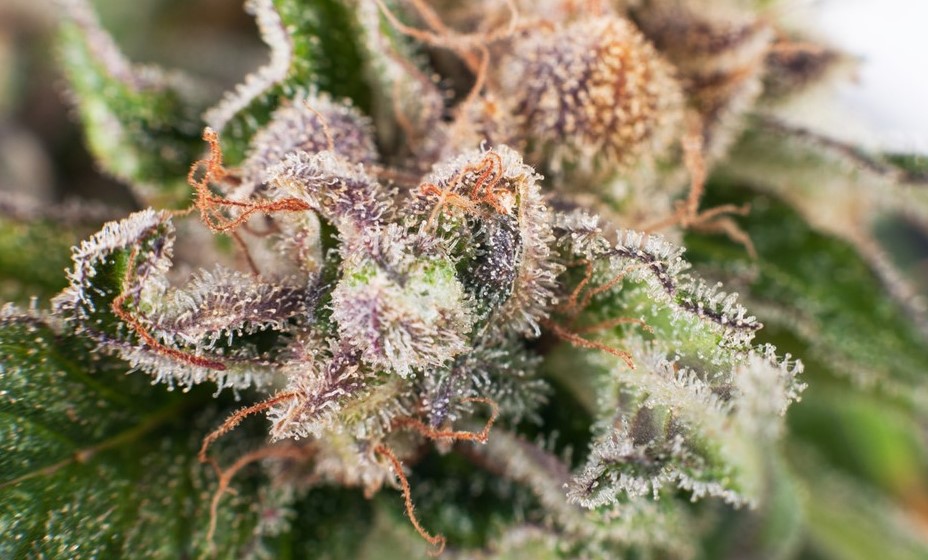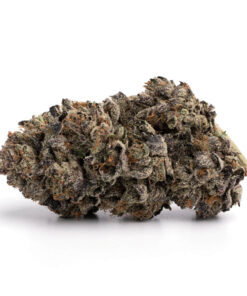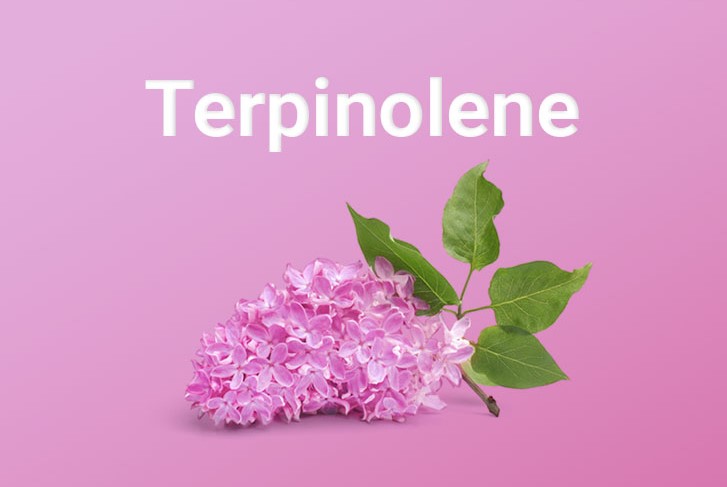Uncategorized
What is Limonene?
This terpene is known by several names, including citrus-derived limonene, ɟ-limonene, and limonene. Terpenes are aromatic chemicals found in plants (including Cannabis sativa) and foods. Limonene is a terpene that may be found in pure essential oils derived from citrus fruits. Limonene is extracted from orange fruit nectar and used to make scents, cleaning supplies, and as a flavor component in foods.
Limonene is sometimes regarded to be abundant in limonene-rich strains, although this isn’t always the case. Look for lab-tested items to ensure that you’re receiving a limonene-rich strain.
Lemon terpene, also known as limonene, is a volatile terpene that may be found in almost all cannabis strains at very low levels (10-30% of the dry weight), although it accounts for 10-30% of the dry weight of most flowers.

High-limonene cannabis strains
Some strains have more limonene than others, but these levels vary widely depending on genetics, growing procedures, and curing methods. The only way to know for sure if your strain has a lot of limonene is to purchase lab-tested samples.
The following popular strains have limonene-dominant terpene profiles, according to data from Leafly’s laboratory partners:
- Banana OG
- Berry White
- Black Cherry Soda
- Cinex
- Do-Si-Dos
- MAC
- Purple Hindu Kush
- Quantum Kush
- Strawberry Banana
- Tahoe OG
- Wedding Cake
- White Fire OG
Limonene’s potential effects and benefits
Limonene is a chemical produced in citrus fruits. It has antioxidant and anti-inflammatory properties, which makes it useful for treating neurodegenerative diseases. Despite its neuroprotective effects, limonene is still largely unknown when it comes to how it works in the brain and body, as well as how much is required to achieve these results. Many limonene studies to date have used enormous dosages—many times more than those found in cannabis—which suggests that further study on cannabis-derived limonene would be beneficial.
- Elevated mood
- Stress relief
- Antifungal properties
- Antibacterial properties
- May help relieve heartburn and gastric reflux
- Improves absorption of other terpenes and chemicals by way of the skin, mucous membranes, and digestive tract
Limonene has also been found to have anti-tumor effects in laboratory animals. Limonene reduced the growth of skin and mammary tumors in lab mice. The presence of limonene in the diet of mice was tested in two additional studies, which showed that it can help prevent tumors from forming and spreading. In one study, scientists examined 532 women who had been diagnosed with invasive lobular carcinoma and who were being treated for their disease with radiation or anti-hormone therapy at Bolarinwa Cancer Hospital. After being given either 100 mg/kg daily limonene orally or a placebo pill for 4 weeks, both groups experienced an improved tumor response rate than what was seen before treatment (60 percent vs 20 percent).
Limonene has been found to cause tumor cell death in laboratory animals. Limonene’s advantages in breast cancer, on the other hand, necessitate greater dosages than those seen in cannabis alone. It’s unclear whether specific cannabinoids enhance limonene’s anti-cancer potency. There isn’t enough evidence right now to suggest that limonene-rich cannabis medications would be effective against disease in people.
Future research on limonene
It’s also unclear how limonene works. Limonene inhalation stimulates the brain’s olfactory system and causes serotonin and dopamine levels to rise, all of which are linked to anxiety, sadness, and OCD. Is it merely stimulating the brain’s sense of smell or is it also changing neurons directly? We haven’t figured that out yet.
Limonene, unlike other terpenes like linalool and b-caryophyllene, does not have any known brain receptors. Limonene’s neural and bodily targets remain unknown, which may prevent users from taking advantage of limonene’s therapeutic effects.
Dosing considerations for Limonene
Limonene is used in various quantities depending on a variety of variables, including the user’s age, health, and other factors. There isn’t enough research available right now to establish a limonene dosage range. Keep in mind that natural therapies aren’t always completely safe, and dosages can be crucial. Before using any natural solution, double-check the label instructions with your pharmacist or doctor or other healthcare professional.
Supporting research
Limonene, on the other hand, has a limited chemical stability. Only a few preclinical studies have been conducted, and they are not conclusive. The anti-inflammatory, antioxidant, and cardioprotective effects of limonene have been well documented.
In 2006, the Israeli Department of Medicinal Chemistry and Natural Products carried out an in vitro study with orange oil. They discovered that a “combination of citrus oil and MgCl2” may be used as a natural antibacterial and anti-inflammatory agent in an in vitro experiment.
In 2006, the Israeli Department of Medicinal Chemistry and Natural Products conducted an in vitro study on orange oil. They stated that a “combination of citrus oil and MgCl2” may be used as a natural antibacterial and anti-inflammatory treatment in an in vitro study.
Following reports that it promotes fat accumulation in the liver, researchers in China investigated limonene’s effect on obesity using an animal model of high-fat, diet-induced obesity. Limonene was discovered to have “dietary supplement potential for preventing and treating metabolic diseases” according to the study.
The Journal of Experimental and Therapeutic Medicine released a 2018 study suggesting that the effects of α-limonene on “stroke-prone spontaneously hypertensive rats” (SHRsp) might be beneficial. After stroke, ᴅ-limonene was discovered to lower blood pressure in SHRsp rats. It also prevented learning and cognitive impairments.
Safety and side effects
Since 1994, the US Food and Drug Administration has recognized limonene as a safe food additive and flavoring. Researchers discovered that limonene has “slightly low acute oral toxicity.” The only reported negative effect was skin irritation from limonene-infused shampoos, lotions, or sprays.
Limonene cannabis strains for anxiety, depression, and stress relief.

Limonene is a terpene that may be found in cannabis and nature. The flavor of citrus fruit peels is largely composed of limonene, as you correctly pointed out, which explains why the terpene got its name from the lemon. Limonene has been utilized as a fragrance component since it has such a pleasant scent.
In small amounts, limonene is biodegradable and non-harmful. However, larger doses may produce unpleasant side effects. A single gram per kilogram of body weight (about 68 grams of limonene for a 150-pound person) is an unhealthy amount to ingest. While dietary supplements containing limonene are readily available, it’s a good idea to consult with your doctor before adding large quantities of limonene to your diet because this is considerably greater than what you’ll find in cannabis flower or cannabis products.
Geranyl pyrophosphate is transformed into limonene in the presence of enzymes, and it serves as a precursor to cannabinoids. After being produced, limonene may be excreted or converted to other cannabis terpenes.
Lemon balm contains a chemical that is similar to terpene limonene, which plants use to defend themselves from pathogens. Its antibacterial and antioxidant properties have been well-studied but it also has an impact on brain function that scientists are looking to understand better for the treatment of a range of diseases—including anxiety and other mental health issues.
The potential benefits of limonene on anxiety, depression, and stress
Both orally ingested limonene and inhaled limonene vapor have been proved in laboratory mice to reduce anxiety. Limonene has also been shown in studies to help mice afflicted with obsessive compulsive disorder-like behavior (OCD) decrease their compulsive habits. Limonene’s anxiolytic effects, on the other hand, seem to be strain or type of anxiety test used; thus, its anxiolytic effects may work for some but not others.
Both orally ingested limonene and inhaled limonene vapour have been proved in laboratory mice to reduce anxiety. Limonene has also been observed in studies to help mice with obsessive compulsive disorder-like behavior (OCD) quit compulsive behaviors. Limonene’s anxiolytic effects, on the other hand, appear to be strain or type of anxiety test used; thus, its anxiolytic effects may work for some but not others.
Limonene has been shown in animal studies to be an antidepressant. Although only a few human research have been done on limonene’s antidepressant effectiveness, one modest study of 12 hospitalised patients with depression found encouraging results. According to one tiny study, limonene vapor inhalation reduced the need for antidepressant drugs in 9 of the participants, improved stress hormone levels, and boosted immune function.
Limonene give strains a lemon aroma
A single terpene does not determine the scent of a strain; rather, it is made up of a variety of terpenes. Even if the combination includes many terpenes, one particular terpene will have a distinct odor from many other Terpenes used together.
There are many different color variations, as well as shapes and forms, of cannabis. This is something that certain dispensaries may provide you with a hands-on experience of, where you can smell the distinct scents of individual terpenes in what are known as “terpene stations.” nNone of these fragrances smells exactly like cannabis flower; this is because cannabis contains numerous terpenes instead of just one.
It’s feasible that recognizing the name and, perhaps, even smelling a strain’s fragrance may not be enough to identify its unique terpene profile. Only laboratory testing can tell you for sure what the terpene profile of a cannabis strain or product is.
Unfortunately, most states do not require cannabis products to be tested for terpene levels, and few businesses provide this information on product labels. Look for lab-tested terpene profiles on the label of any strains recommended by your budtender if you want to know the terpene profile of a strain. There are a few cannabis firms that provide terpene profiles to clients on product labels, however look for lab-tested terpene profiles on the strain’s label if you want to learn about a strain’s terpene profile.

 Whatsapp
Whatsapp



















